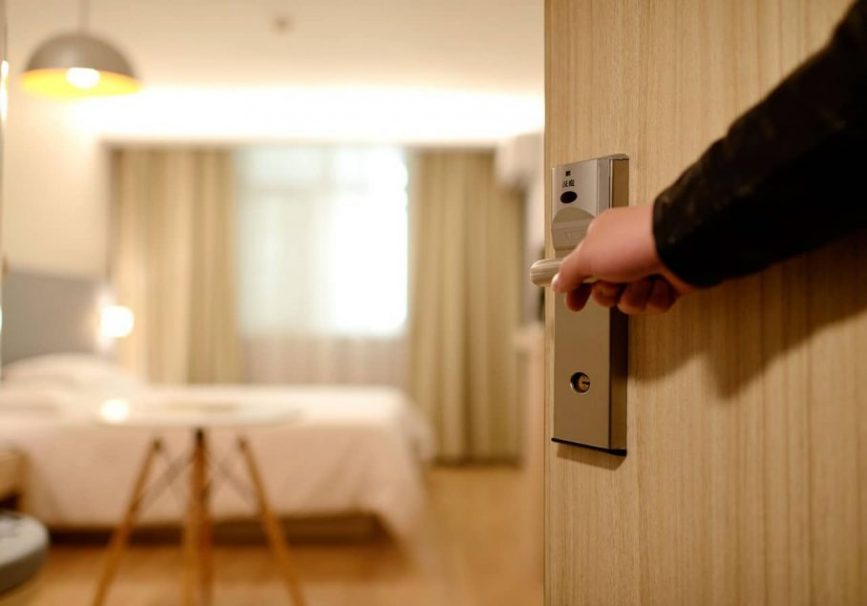How to rent out your spare room
So you’ve finally taken the plunge and decided to rent out a spare room, and put it to good use. It might seem like a simple idea, and you might think listing a spare room online is an easy process – but the truth is, there’s a lot to consider.
It’s easy to assume you’ll be inundated with offers, and your tenants will be well behaved and pay on time – but it’s not always that simple.
Finding a suitable potential lodger, understanding tax laws and knowing your legal responsibility as a landlord is a lot to manage. It’s something you should begin researching sooner rather than later. There are lots of things to consider when renting out a room for the first time.
Here’s a comprehensive beginners guide to get you started.
 Profile of guest
Profile of guest
Firstly, you should establish the profile of the guest you are willing to rent your spare room to. For example will it be an international student, a tourist or a permanent lodger? Different people will have different needs and budgets, so it’s worth considering who you want to let to.
Next, consider how long you are willing to allow people to stay for. Short term rentals can be anything from 1 month – 6 months, and longer lets tend to be anything longer than 6 months. Knowing whether you’re choosing short term or long term will help you figure out the best places to advertise.
Another thing to consider is the details. Are you happy to let people stay who own pets. What about families with small children? Are you happy for your tenants to sublet?
Furnished or Unfurnished?
Depending on who you’re renting to, you might want to either add or remove furniture. Some tenants will always prefer furniture (such as students), but some tenants may prefer to bring their own items to make the place feel like home. It’s worth deciding relatively early on, as most rental listings will ask you to specify.
Unsure which to go with? Keeping a property unfurnished can limit loss or damage, so there are certainly advantages there. If you’re worried about certain pieces getting broken, then it’s often best just to remove them. However, if increased income is your primary reason for letting, there are some advantages to keeping a property furnished.
Rent a Room scheme
With renting and letting, there are various tax rules which apply to the income generated. If you sign up to the rent a room scheme, then you won’t pay tax on the first £7,500 you earn each year from rent. It only applies to furnished accommodation and allows you to earn £7,500 tax-free. If you earn more than this from renting out a room, you’ll have to declare it and pay tax on the profits.
This applies to Host Families offering Homestay accommodation and renting to international students who are looking to find a room.
Immigration status
The last thing you want as a new landlord, is to run into issues with the law. Did you know you can be sent to prison for renting to someone who isn’t allowed to live in England?
When taking on a new lodger or tenant, you must check they can legally rent a room or property. You must check everyone over the age of 18 is allowed to live in England. You must ask for original documents such as a birth certificate and a residence permit which proves they have the right to rent. You should always double check the paperwork to be sure.
Safety
As a landlord, you now have a legal obligation to ensure the property is safe for your tenant or lodger. You will need a gas safety certificate and a fire risk assessment. It’s also worth getting a general check carried out, for things like damp, leakages, mice – and anything else that a tenant could be harmed by.
You may think your home is perfectly safe but things become a little more official when you invite paying guests into the property. There’s no flexibility here, you need these official documents to prove the safety of your home.
Insurance
You must make sure to notify your insurance company of your consideration to rent a room. There are different types of insurance policies to cover different types of properties and agreements. If you don’t check whether your current insurance policy covers lodgers then they could refuse to pay out.
It’s often easier to rent out a room through a professional accommodation service. They will have experience in the sector and will make sure you’re being compliant with laws which now apply to you.
House Rules
If you’re renting out your spare room, and you still plan on residing there yourself, you’ll need to make sure you’ve set out any house rules for your new tenant. This doesn’t always have to be something official – although many landlords like to make it so. Think about how you would expect a tenant to behave, your own lifestyle, and what is fair.
For example, some live-in-landlords will have rules such as ‘no guests for longer than 1 week, without prior approval’ or ‘no large gatherings or house parties without prior approval’. Having these agreements in place protect you from any nasty surprises.
Hosting International Students
If you are looking into renting out a spare room, you may wish to consider hosting students as an alternative to a lodger.
Thousands of overseas students choose to visit the UK every year. They choose to live with a “Host Family” over a Halls of Residence or a Student House Share for a more homely accommodation experience. For the host, it can be a nicer way to rent out a spare room. Hosts are there not just to provide a room in return for a rent. They choose to host in order to support their students and help them find their feet in the UK.
Need further information on renting out a spare room or about hosting international students? Get in touch with our friendly team!

